At the High-level Week in New York, Minister Fajon prioritized political solutions over military approaches
The High-level Week of the General Debate of the UN General Assembly…
In September, the UN Security Council addressed a wide range of issues and held four high-level meetings during the General Assembly High-level Week, two of which were extraordinary. The Council focused on developments in the Middle East and the escalation of Russia’s war against Ukraine. Slovenia, together with the European members of the Council, called for a high-level briefing on Ukraine and emergency meetings on Poland and Estonia. The Council also rejected the lifting of sanctions on Iran and once again faced a veto on the latest resolution on Gaza.
During the UN General Assembly High-level Week, the Security Council convened four high-level meetings. Slovenia and the European members of the Council called for a briefing on Ukraine and supported the call for an emergency meeting on Estonia. The other two high-level meetings focused on the situation in Palestine and the implications of AI for international peace and security.
Speaking at the Council’s emergency meeting on Russia’s violation of Estonian airspace, Deputy Foreign Minister Dr Melita Gabrič condemned Russia’s provocations as deliberate and dangerous. She expressed Slovenia’s firm support for Estonia, its security, sovereignty and territorial integrity. “Europe wants peace and a ceasefire in Ukraine,” she added, calling for serious and meaningful peace negotiations to begin immediately.
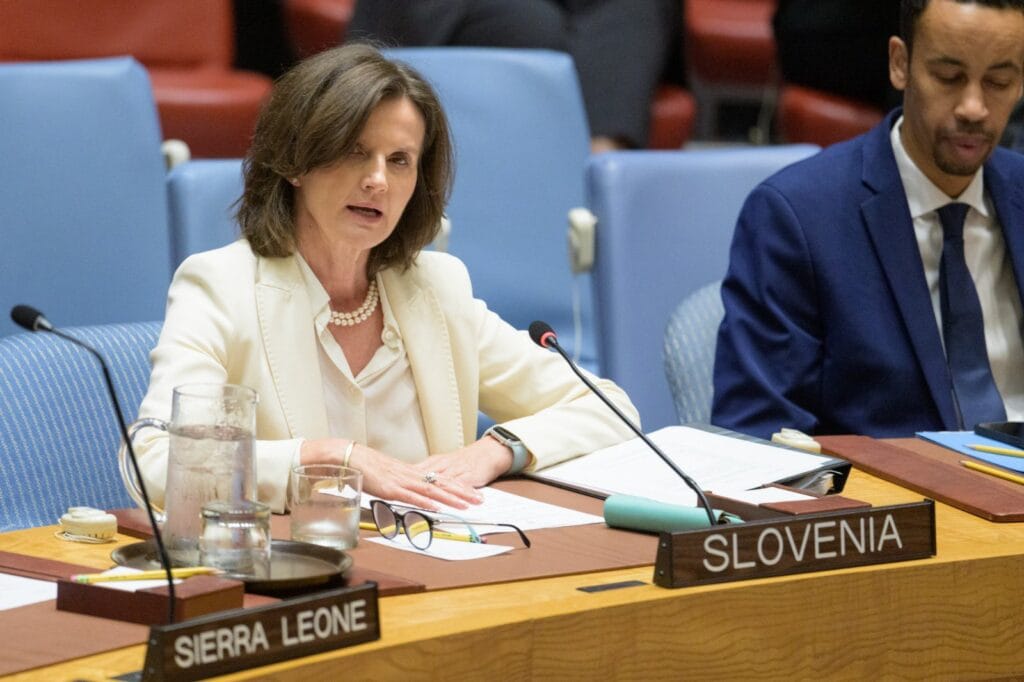
At the high-level meeting on the situation in Palestine, Deputy Prime Minister Tanja Fajon stressed the urgent need for action to prevent “the stain of the Gaza genocide from defining our collective future.” She said that the international community must step up to counter occupation, annexation, forced displacement, human rights violations, terrorism and extremism.
The Deputy Prime Minister also participated in the high-level meeting on Ukraine. She expressed regret that Russia’s response to calls for peace had amounted to nothing more than drone and missile attacks. Slovenia condemns violations of international humanitarian law, the abduction of children and attacks on civilians and critical infrastructure. “This war erodes the very foundations of the UN Charter,” underscored the Minister, reaffirming Slovenia’s commitment to support the people of Ukraine – until they achieve a just and lasting peace, firmly grounded in the UN Charter.
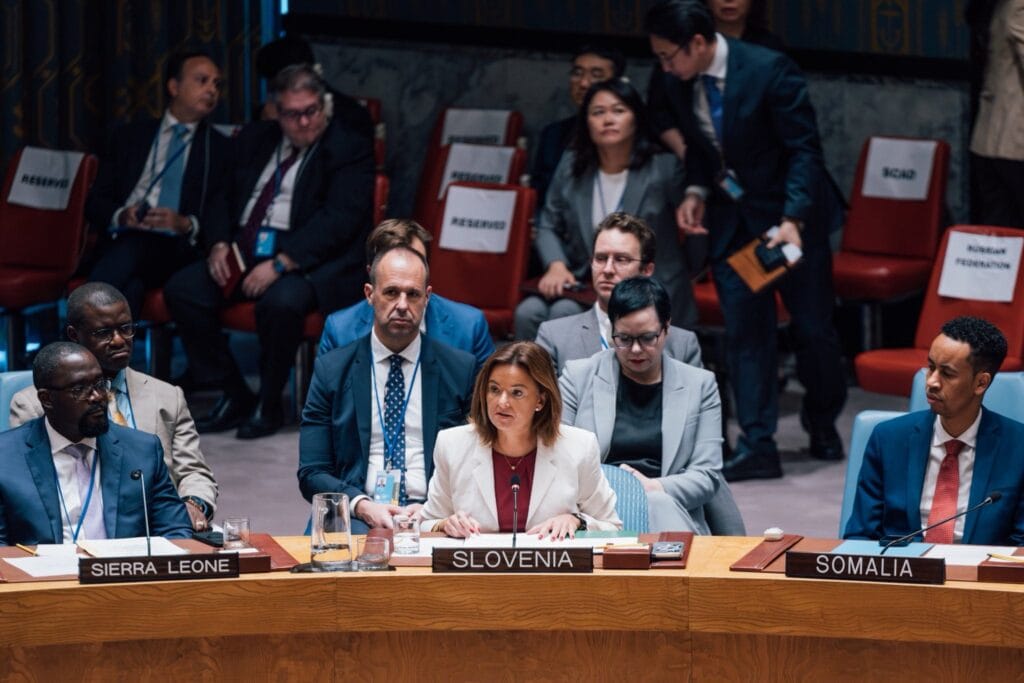
Slovenian President Nataša Pirc Musar participated in the high-level open debate on artificial intelligence (AI) and peace and security, a signature event of the Korean Presidency. She emphasized that the Security Council must be prepared to respond to the impact of AI on global peace. Consequently, Slovenia supports the UN Secretary-General’s call for regular briefings by the UN Security Council on AI developments with implications for international peace and security. The President also underlined that decision-making on AI must be guided by international law and ethical principles to ensure its responsible use and development.
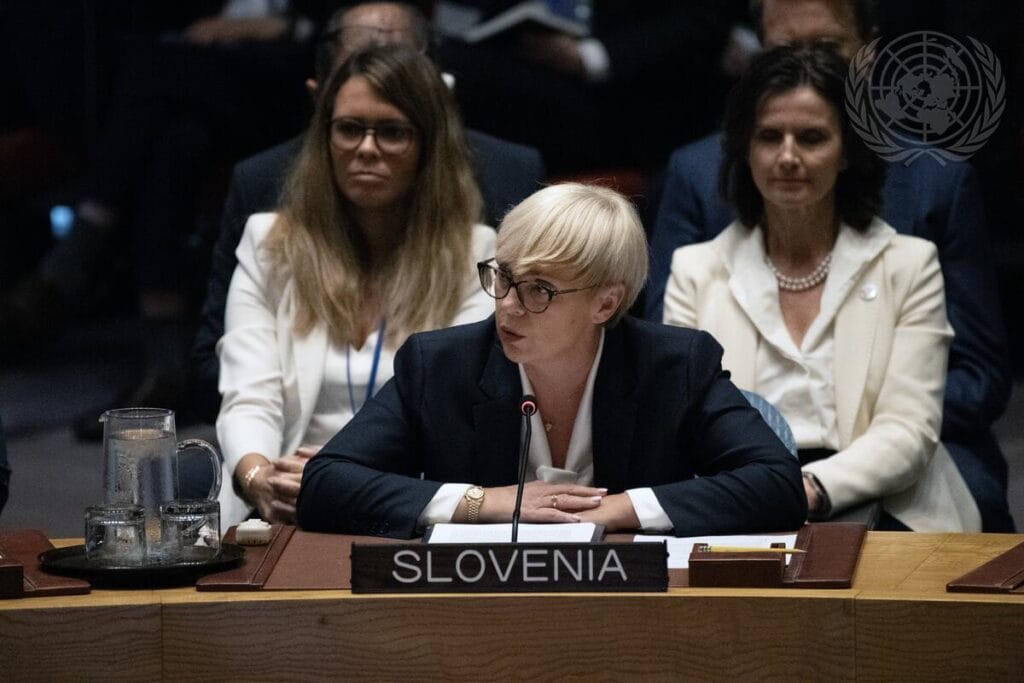
During its 10,000th meeting, the Security Council voted on a Gaza resolution drafted by ten elected members, including Slovenia. Although it received 14 votes in favour, the United States’ sixth veto blocked the action once again. “Our intention was to signal that red lines have been crossed – that people cannot be starved and forcibly displaced – and that they need peace,” said Urška Učakar, Minister Counsellor and Middle East expert, speaking on behalf of Slovenia. The resolution would have demanded an immediate and permanent ceasefire, the removal of all restrictions on the delivery of humanitarian aid and the release of hostages.
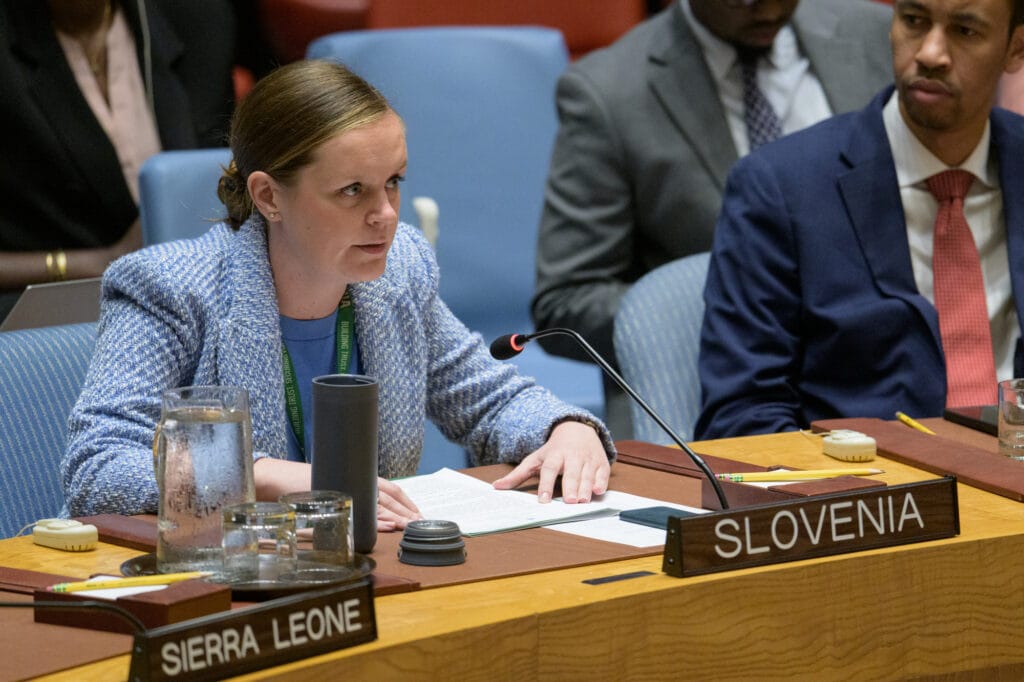
Regarding Iran, Slovenia voted against the permanent lifting of sanctions linked to its nuclear program, citing Iran’s failure to comply with the 2015 nuclear deal. Ambassador Samuel Žbogar emphasized that diplomacy is the only way to resolve the nuclear issue, urging Iran to return to the negotiating table and commit to a peaceful nuclear program in a verifiable manner.
In response to Russia’s drone incursion into Polish airspace, the Security Council held another emergency briefing, requested by Slovenia as an act of firm solidarity with Poland, and in support of its security, sovereignty and territorial integrity. Ambassador Žbogar strongly condemned Russia’s violation of Polish and NATO airspace, describing it as unacceptable. “Let us be clear: such mistakes do not happen. They are no incidents; they are aggressive and dangerous acts,” he stated.
The Security Council also held an urgent meeting after Israel’s strike on Doha. Slovenia strongly condemned the attack as a violation of Qatar’s sovereignty and territorial integrity. Speaking on behalf of Slovenia, Ambassador Žbogar expressed grave concern and reiterated the need for full respect for the UN Charter and international humanitarian law. As the meeting was held on 11 September – the 24th anniversary of the terrorist attacks in the United States – Slovenia reaffirmed its resolute opposition to terrorism.
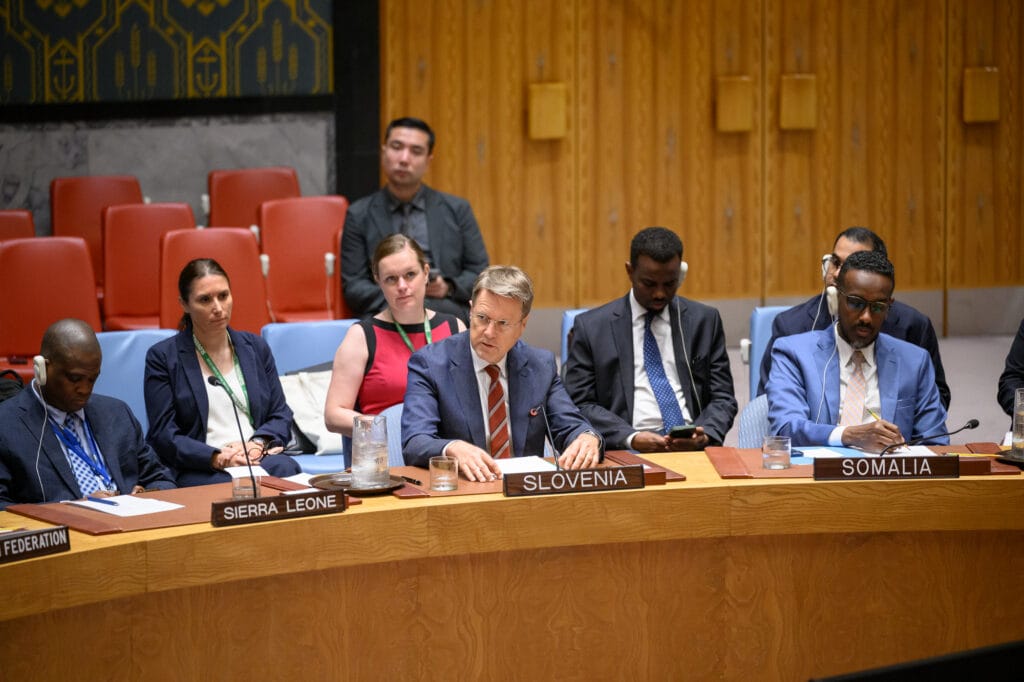
At the Council’s quarterly meeting on Afghanistan, Slovenia underlined that the country cannot prosper unless women and girls are equal. It condemned the Taliban’s ongoing ban on education for girls and women, as well as the systematic abuse and violation of their human rights. Slovenia also denounced the Taliban’s restrictions imposedon Afghan women working for the UN, stressing that those responsible for such violations must be held to account.
The Council also convened for an open debate on the future of peacekeeping operations. The debate confirmed that, while peacekeeping remains an indispensable UN tool, it requires clearer political guidance, a solid financial foundation and flexible mandates. Ambassador Žbogar highlighted three key points: the agility and adaptability of operations; the primacy of political solutions; and the need for coherence, credibility and sustainability. He added: “The UN80 initiative should safeguard core capacities for rapid deployment. Credibility depends on maintaining the highest standards of conduct, accountability and transparency.”
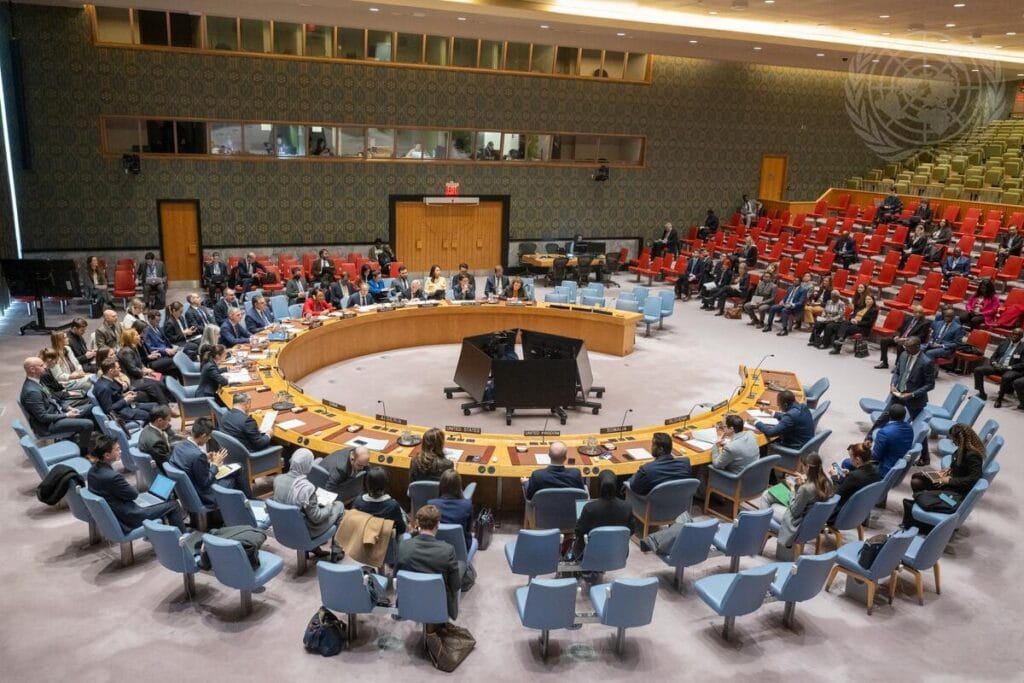
In September, the Security Council issued press statements regarding Libya, the Doha strikes and the detention of humanitarian workers by the Houthis. It also renewed the sanctions regime on Sudan (Darfur), including the arms embargo. In its explanation of the vote, Slovenia highlighted harrowing reports of mass killings, torture, sexual violence, enforced disappearances and the denial of aid – atrocities that demand accountability and the sanctioning of the perpetrators by the Council.
Finally, the Security Council unanimously adopted Resolution 2792 (2025), which addresses the issue of missing persons between Iraq and Kuwait. Progress on this matter is a crucial step towards fostering good-neighbourly relations between the two countries and enhancing stability in the wider region.
After months of escalating gang violence in Haiti, the Security Council, with Slovenia’s support, approved the UN Secretary-General’s recommendation to establish a UN Support Office and authorized transforming the MSS mission into the new Gang Suppression Force.
The High-level Week of the General Debate of the UN General Assembly…
The Slovenian government has approved a financial contribution of EUR 1.2 million…
The President of the Republic of Slovenia took part in…